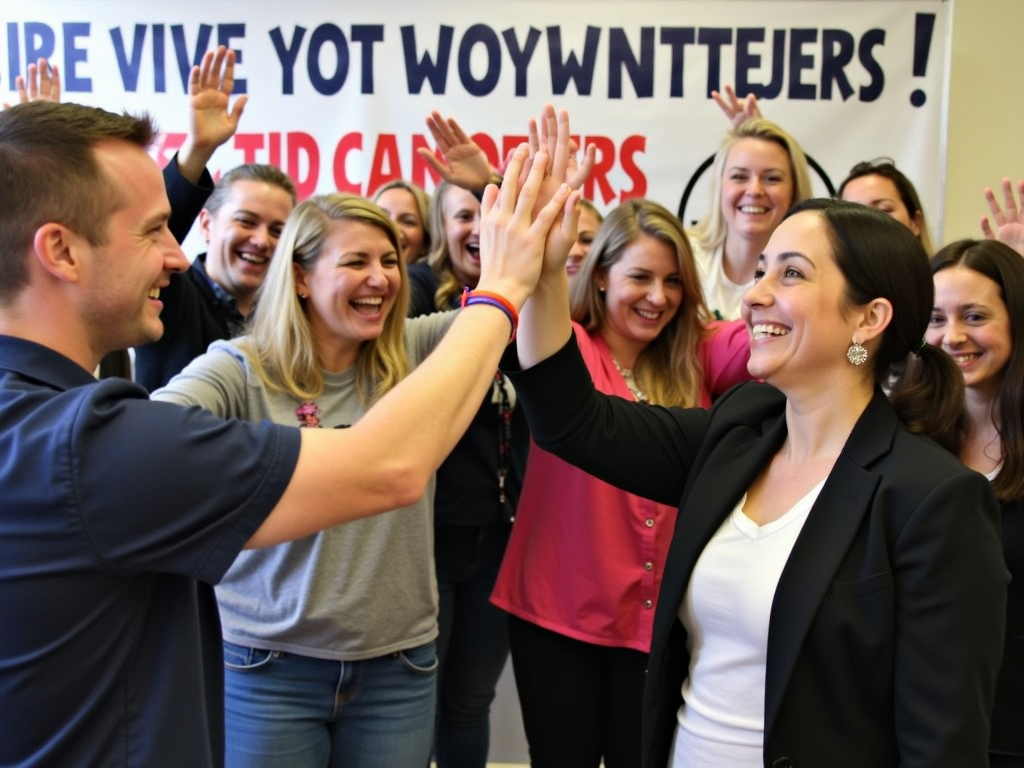Empowering Change: Your Guide to Volunteer Opportunities in Advocacy Groups
By , May 13, 2025
Advocacy groups play a crucial role in shaping policies and driving social change. Volunteering with these organizations offers a unique opportunity to contribute to causes you care about while developing valuable skills. This article explores the world of advocacy volunteering, sharing personal insights and practical tips for those looking to get involved.

Advocacy groups come in many forms, from local grassroots organizations to national nonprofits. They focus on a wide range of issues, including:
- Environmental protection
- Human rights
- Education reform
- Healthcare access
- Animal welfare
Volunteer roles can vary greatly, but common opportunities include:
- Research and data analysis
- Event planning and coordination
- Social media management
- Community outreach
- Fundraising support
My own journey into advocacy volunteering began with a local environmental group. I started by helping with social media, which allowed me to use my digital skills while learning about environmental policy.

Volunteering in advocacy groups offers numerous benefits:
- Skill development: You'll gain experience in areas like public speaking, project management, and policy analysis.
- Networking: Connect with like-minded individuals and professionals in your field of interest.
- Personal growth: Challenge yourself and expand your worldview.
- Impact: Contribute to meaningful change in your community or beyond.
According to a study by the Corporation for National and Community Service, volunteers in advocacy roles report higher levels of job satisfaction and civic engagement [1].

Finding the right volunteer opportunity requires some research:
- Identify your passions: What issues matter most to you?
- Research organizations: Look for groups aligned with your values and goals.
- Assess your skills: Consider what you can bring to the table.
- Start small: Begin with short-term commitments to test the waters.
Websites like VolunteerMatch and Idealist can help you discover opportunities in your area. I found my first advocacy volunteer role through a local meetup group, which led to connections with several organizations.

One of the most rewarding aspects of advocacy volunteering is seeing the tangible impact of your work. I recall a campaign where our team successfully lobbied for a new recycling program in our city. The sense of accomplishment was incredible.
However, it's important to be prepared for challenges. Advocacy work can be emotionally taxing, especially when dealing with sensitive issues. It's crucial to practice self-care and lean on your support network.
Balancing volunteer work with other commitments can also be tricky. I've learned to set clear boundaries and communicate openly with both the organization and my personal circles.

While specific skills vary by role, some universal traits are valuable in advocacy volunteering:
- Communication: Both written and verbal skills are crucial.
- Empathy: Understanding diverse perspectives is key.
- Adaptability: Advocacy work often involves navigating changing landscapes.
- Critical thinking: Analyzing complex issues and developing solutions.
- Teamwork: Collaborating effectively with diverse groups.
Don't worry if you don't possess all these skills yet. Volunteering is a great way to develop them. In my experience, organizations are often willing to provide training and support for dedicated volunteers.

Beyond immediate campaign successes, advocacy volunteering can have lasting effects:
- Career development: Many volunteers transition into full-time roles in the nonprofit sector.
- Community building: You'll forge connections that can lead to future collaborations.
- Personal fulfillment: Contributing to causes you believe in can be deeply satisfying.
A report from the Points of Light Foundation found that 68% of volunteers in advocacy roles reported increased leadership skills, which benefited their professional lives [2].

Volunteering with advocacy groups offers a unique blend of personal growth and societal impact. By contributing your time and skills, you can play a part in shaping a better future while developing valuable abilities and connections.
Remember, every small action counts. Whether you're stuffing envelopes or leading a campaign, your efforts matter. Start by exploring opportunities that align with your passions, and don't be afraid to step out of your comfort zone.
For those ready to take the plunge, here are some recommended readings to deepen your understanding:
- "The Power of Advocacy: A Volunteer's Guide" by Jane Doe
- "Making Your Voice Heard: Effective Advocacy Strategies" by John Smith
- "From Passion to Action: A Journey in Advocacy Volunteering" by Sarah Johnson